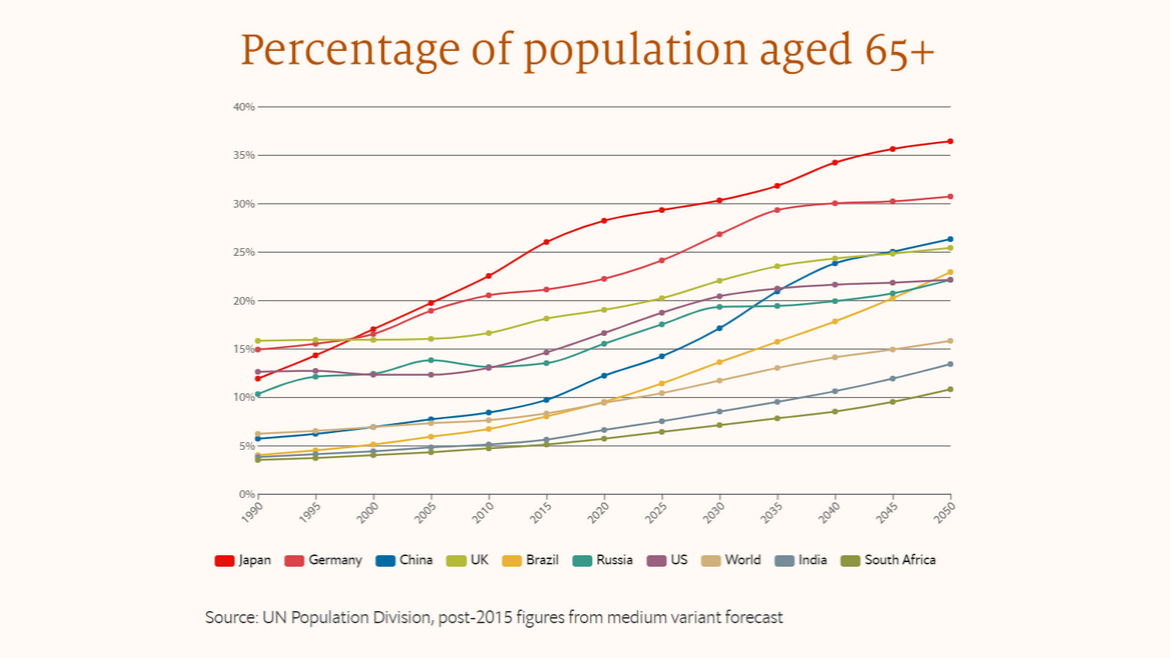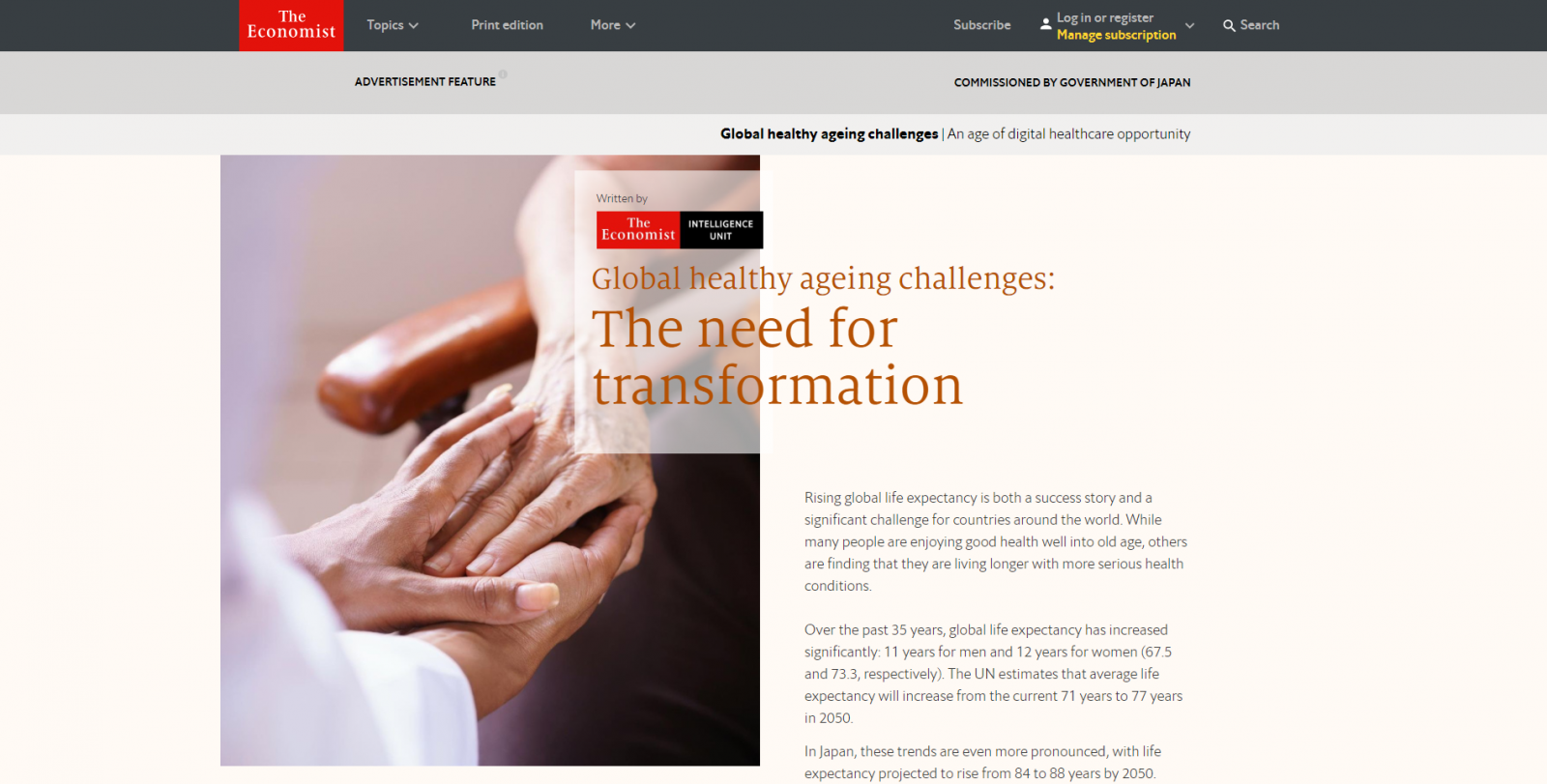Over the past 35 years, global life expectancy has increased significantly: 11 years for men and 12 years for women (67.5 and 73.3, respectively). The UN estimates that average life expectancy will increase from the current 71 years to 77 years in 2050.
In Japan, these trends are even more pronounced, with life expectancy projected to rise from 84 to 88 years by 2050. Japan has the world’s oldest population, with a third of its population over the age of 60. As a result, the country has significant experience in addressing the challenges facing an ageing population. In addition, a number of other countries have been experimenting with ways of making healthcare more integrated and urban environments more accessible for the elderly.

Those interviewed for this article say that the key aim of governments and policymakers should be looking at ways to improve the quality of life of older people and help them to stay well and independent for longer.
"Healthy ageing is about developing and maintaining the functional ability that enables wellbeing in older age—in short, allowing someone to continue to be able to be and do whatever they value for as long as possible."
Alana Officer, Senior health adviser for the Department of Ageing and the Life Course at the World Health Organisation (WHO), Geneva
Yet the increase in the number of older people confronting multiple chronic diseases highlights the need for different training for healthcare providers and a broader understanding of the geriatric patient. Older populations are also putting pressure on healthcare infrastructure and healthcare systems, as well as posing challenges for information and communications technology systems as the collection and analysis of a growing amount of data become increasingly important. Finally, there is a need to create sustainable environments for ageing populations.
How can healthcare systems prepare for older patients and enable healthy ageing? Read full article to find out more>
This article is commissioned by The Government of Japan and written by The Economist Intelligence Unit.





